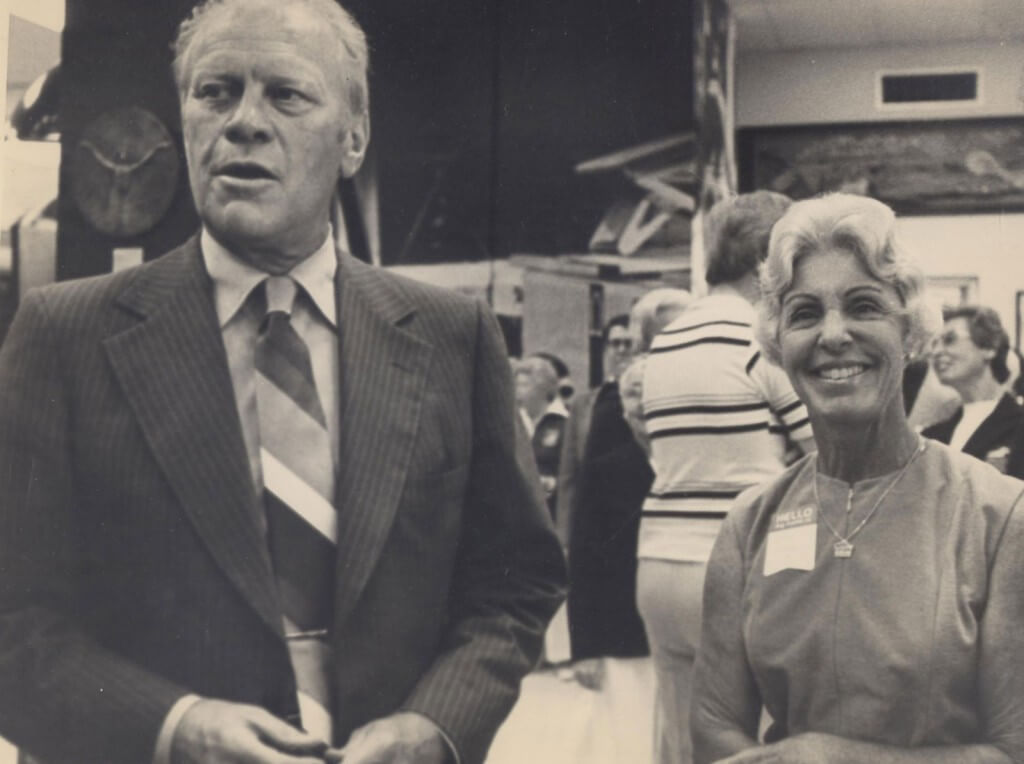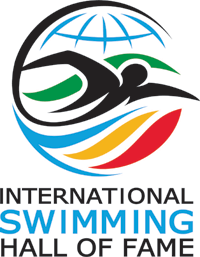June Krauser, The Mother Of Masters Swimming, Dead At 88 Years Old

June Krauser, a leading figure in the development of Masters Swimming and the Special Olympics passed away on Saturday, she was 88 years-old. Known primarily as the “Mother of Masters Swimming” around the world, Krauser also played important, but lesser known roles in the creation of the International Swimming Hall of Fame (ISHOF) and the Special Olympics.
“June Krauser was a remarkable woman,’ says John Spannth. “As a volunteer, she literally wrote the book when it came to competitive swimming for adults and for the Special Olympics, and did more to kickstart those two programs than anyone will ever know.” Spannuth, now CEO of the World Water Fitness Association, worked with June as the National Aquatics Administrator for the Amateur Athletic Union (AAU) and later as the first Executive Director of the Special Olympics.
“When the first ‘Masters’ competition for swimmers was held in 1970, there were just 40 competitors,” said Bruce Wigo, President of ISHOF. “This week, in Montreal, Canada, there are
over 15,000 Master’s swimmers, divers, water polo players and synchronized swimmers competing at 15th FINA World Masters Aquatics Championships. They are from all over the world. June’s role in starting this great international adult fitness program cannot be overstated.”
June Krauser was born in Indianapolis and learned to swim in Lake Michigan at age four. At age 16, she won a national championship in the 220-yard breaststroke and was a member of three Women’s AAU Senior National Championship teams, representing the Riviera Swim Club of Indianapolis, Indiana, in 1941, ’42 and ’43. A graduate of Purdue University, June retired from swimming for close to 30 years.
Moving to Fort Lauderdale, Florida with her husband Jack in 1955, June got her feet wet as an
age group mother, when daughter Janice turned five and swam in her first AAU meet. Son Larry
followed and later became a Purdue University captain while Janice started the women’s
swimming program at the University of Tennessee. June became an official, and after helping to formulate the Florida Gold Coast Swimming Committee, she was elected secretary/treasurer, a post she held for nine years. June’s administrative and organization skills were immediately acclaimed, and she moved quickly to the national level. In 1959, June was named delegate for the AAU Convention and has represented South Florida every year since at AAU, USS, USMS or USAS conventions until 2008.
In 1964, June was named as a member of the U.S. Olympic Women’s Swim Committee and in 1968 took on the unpopular but necessary role of re-organizing and enforcing the rulebook as the
Swimming Rules Chairman. She also served as manager on six international AAU trips.
In 1970, when Dr. Ransom Arthur conceived of the idea of establishing a competitive swimming
program for adults for health and fitness, he turned to John Spannuth for help. To turn their ideas into a program that would be approved by the Amateur Athletic Union, Spannuth turned to June Krauser.
“She was the most efficient person I ever knew,” says Spannuth. “She was able to take our ideas and turn them into a program with policies, procedures and rules to follow.”
Krauser was the first and only rules chairman for United States Masters Swimming and helped to write most of them. She was founder and editor of Masters first national newsletter, Swim
Master and printed it for the next 20 years. For her untiring devotion to the sport, June was
named the second recipient of the Capt. Ransom J. Arthur Award, and the first USMS rulebook
was dedicated in her name. She became affectionately known as “Mother of Masters Swimming.” Internationally, she served on the FINA Masters Swimming Technical Committee
from 1988 to 2004.
“Masters Swimming would be all the poorer if not for her efforts,” Says Ted Haartz, who worked with June in the early days of Masters Swimming, and followed June as president of United States Masters Swimming. “She was the right person in the right place at the right time.”
When Spannuth moved over to work for Sergeant Schriver at the Special Olympics a few years
later, he again turned to June to write the rules for that organization.
“June is the person who took those two ideas in into a format that explained them and then wrote the rulebooks that made these two movements a reality. If you needed something done right, you called June Krauser.”
June’s involvement with swimming also extended to the International Swimming Hall of Fame (ISHOF). She attended the 1962 AAU convention in Detroit when the Hall of Fame was awarded to the City of Fort Lauderdale, beating out two other cities, and she attended the 1968 FINA Congress Meeting in Mexico City when FINA President Javier Ostos presented the vote to confirm ISHOF’s position in the world. Over the past 52 years, she and her family have contributed to many projects, which have helped sustain the ISHOF.
June wasn’t just a contributor outside of the pool. When the masters swimming program started
she jumped back in the pool and started competing again. She never missed a USMS national
competition from 1972 to 2006 and competed in every FINA Masters World Championship from
its inception in 1986 – to 2006. She held 154 US Masters Records and 66 FINA Masters World
Records.
She was inducted into the International Swimming Hall of Fame as an Honor Contributor in 1994 and into the International Masters Swimming Hall of Fame, as an Honor Swimmer in 2003. In 2007 she was inducted into the Broward County (Florida) Sports Hall of Fame.
Memorial services are being planned for September and will be held at the International Swimming Hall of Fame, in Fort Lauderdale and in Jacksonville, Florida during the United States Aquatic Sports Convention.
She is survived by her daughter, Janice Krauser-Keeley and her husband Bob, of Fort Lauderdale, FL; her son, Larry Bruce Krauser, his wife Sheryl, of Spokane, Washington, and grandchildren Cameron, Gaelyn and Lindsey and great-granddaughters Natalie and Charlotte.
In lieu of flowers, the family has requested that donations be made in her name to either the International Swimming Hall of Fame or the United States Masters Swimming Foundation.
This article was republished with the permission of the International Swimming Hall of Fame.





June was truly a wonderful lady who seemed to have endless energy to devote to the things she loved. My first USMS nationals was at the ISHOF pool where June was running the meet – the last one to seed and score the meet by hand – her hand I believe. Having had the pleasure of serving on the Rules Committee with her, she was tough – she had to be – and got the job done for the betterment of USMS. We will all miss her.
I just adored June! She sat with our group in the box seats behind lane 4 at the 2004 Olympic Trials in Long Beach. Her (grand niece?) Sara McLarty made finals in more than one event. June was so proud. Phil Whitten was there, too. It was exciting seeing so many world records drop, meeting a lot of people, and having June with us.
I said we should all do it again in 2008, but she didn’t think she would make it, and that surprised me a little. It was because she knew her days of traveling were limited, and it would be too big a trip four years down the line. That was the only time June Krauser would admit she wasn’t getting any younger.
A more determined person I never knew. She was prolific, highly capable, and not afraid to let her opinions be known. In her later years she had mellowed considerably, and I spent time with her every chance I got, always at the national meets and conventions. Taking note of her decades-long service publishing the first masters publication in the U.S., Swim-Master, I led the effort to create the June Krauser USMS Communications Award. It was my great honor to present June with the inaugural award in 2005, as well as help her hold up the heavy trophy.
At one time, June’s son Larry mentioned his mother had worn out more than one typewriter during her time as publisher of Swim-Master, when she was also directing meets and doing any number of other volunteer jobs. She did it all. I wished her first typewriter had gone to the International Swimming Hall of Fame Museum, because it documented the golden age of masters swimming in the US.
It has been five or six years since the last time I saw June, so I have already missed her, but I’ll miss her even more knowing she’s gone. I’ll never forget her. Such an amazing person. May she rest in peace!
Very Nice Post, Bill